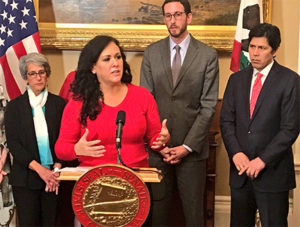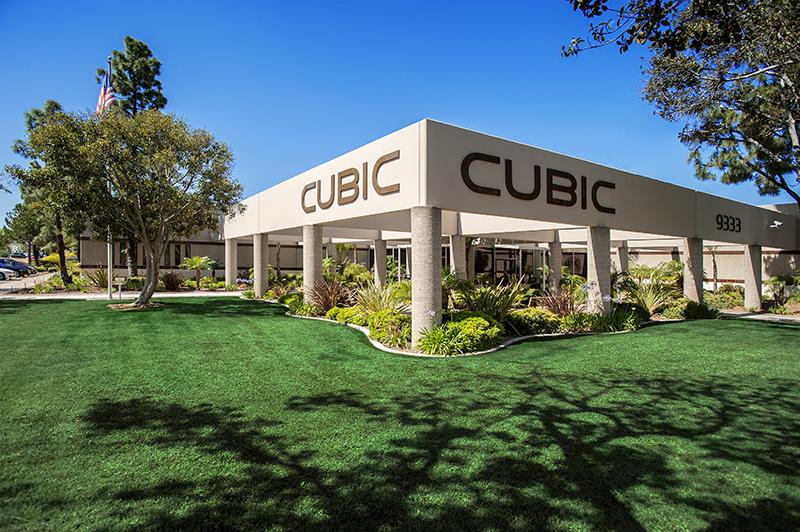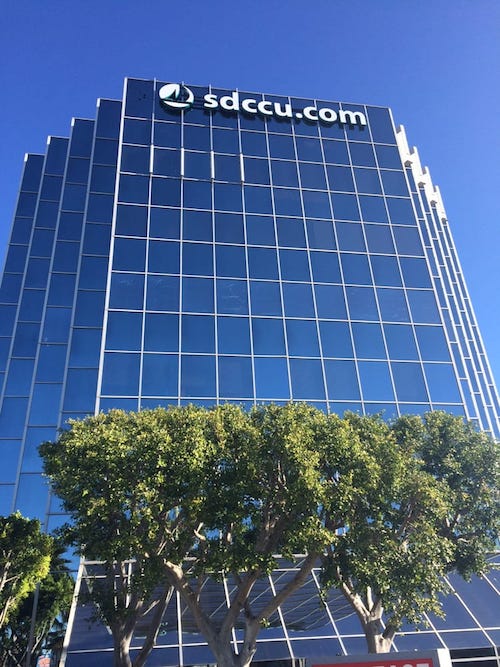Daily Business Report-Sept. 21, 2017
California Assembly. (CALmatters photo by Max Whittaker)
Despite Legislature’s Liberal Bent,
California Business Groups Did Well
By Dan Walters | CALmatters
From all appearances, the California Legislature’s 2017 session was one of the most liberal — or progressive, as liberals prefer to say — in the state’s history.

female workers. But the chamber denounces it as “public shaming” of employers. Gonzalez Fletcher has had a knack for getting legislation labeled as “job killers” enacted.
However, despite the overall left-of-center tone to the session that ended last week, the California Chamber of Commerce and other business and employer lobbies did what they have done for nearly two decades: killed all but a few of the measures tagged with the “job killer” epithet.
This year, the chamber placed 27 bills on its hit list and when the dust had settled early Saturday morning, 24 of them had been executed, and only three had been sent to Gov. Jerry Brown’s desk for signature or veto.
That 89 percent kill rate is right in line with the chamber’s record ever since the “job killer” program was instituted in the late 1990s.
As usual, however, one will not find fingerprints on the ones that died, in the form of up-or-down rollcall votes, because virtually all were either dropped by their authors or held in committee when those involved realized that they couldn’t make it through the process. The subtle influence of a bloc of moderate Democrats was a major factor in the soft kills.
Most of the contentious measures, including the three that survived, were sponsored by liberal groups, such as unions, per sonal injury lawyers, environmentalists or consumer activists. They were billed as protecting California consumers and/or workers, but chamber president Allan Zaremberg tagged them as “a threat to our state’s future prosperity and our quality of life.”
Nine of the stalled bills would have directly or indirectly raised taxes.
The most prominent casualty of the annual battle was Senate Bill 562, which would have created a universal health care system for California. It passed the Senate but Speaker Rendon blocked action in the Assembly, calling it “woefully incomplete” because it lacked a financing mechanism.
Ever since, the chief sponsor of the measure, the California Nurses Association, has waged a campaign of personal invective against Rendon, mirroring the ideological split in the state’s Democratic Party.
The three survivors are:
Senate Bill 33, carried by Sen. Bill Dodd, D-Napa. It would void arbitration clauses in banking agreements if they involve fraud or identity theft, sparked by a scandal involving huge numbers of accounts opened for Wells Fargo customers by bank employees without knowledge or permission.
Senate Bill 63, by Sen. Hannah-Beth Jackson, D-Santa Barbara. It would extend job-protected maternal and paternal leave, now affecting employers with 50 or more workers, to those with 20 or more. Brown vetoed a similar, but not identical, Jackson bill last year, saying he was “concerned… about the impact of this leave particularly on small businesses and the potential liability that could result.”
Assembly Bill 1209, by Assemblywoman Lorena Gonzalez Fletcher, D-San Diego. It would require large employers to collect and publicly report data on wages by gender and is aimed at closing the gap between male and female workers. But the chamber denounces it as “public shaming” of employers. Gonzalez Fletcher has had a knack for getting legislation labeled as “job killers” enacted.
Those three legislators and their backers now will wage a behind the-scenes battle with the chamber and its allies over whether Brown signs or vetoes the three bills.
CALmatters is a public interest journalism venture committed to explaining how California’s state Capitol works and why it matters. For more stories by Dan Walters, go to calmatters.org/commentary.
__________________
Deputy Surgeon General to Speak
at SDSU Provost’s Lecture Series
San Diego State University will welcome Deputy Surgeon General Rear Adm. Sylvia Trent-Adams to campus to speak at the Provost’s Distinguished Lecture Series at 2 p.m. on Tuesday, Sept. 26, in the Conrad Prebys Aztec Student Union’s Montezuma Hall.
Trent-Adams was appointed deputy surgeon general in September 2015. In the position, she advises and supports the U.S. Surgeon General regarding operations of the U.S. Public Health Service (USPHS) Commissioned Corps and communications to advance the health of the nation. A rear admiral in the USPHS, she has served as acting Surgeon General, becoming the second non-physician to serve in this role.
__________________
Carlsbad Mixed-Use Property Sold for $2.7 Million
Colliers International San Diego Region announces the sale of a coastal multi-tenant office and retail mixed-use property located at 2659 State St. in Carlsbad for $ 2.7 million. The 6,600-square foot building is located one block from the Carlsbad Village Coaster station.
Amy McNamara of Colliers International represented the Carlsbad-based buyer, 2659 State Partners LLC and the Carlsbad-based seller, Sgueglia Vincent & Nina Family Trust.
“The buyer plans to modernize and activate this property, which was originally constructed in 1974,” said McNamara. “There has been consistent revitalization of older properties in the Carlsbad Village, which will continue for years to come and further enhance its vibrant neighborhood experience.”
__________________
ADA Improvements Made at
Montgomery-Gibbs Airport
Access to the Montgomery-Gibbs Airport for customers with disabilities is now easier with the installation of interior and exterior Americans with Disabilities Act (ADA). The ADA makeover is a public accommodation improvement provided by the city of San Diego to meet current ADA guidelines.
Montgomery-Gibbs Executive Airport is the busiest general aviation airport in the San Diego region. The improvements involved the installation of a new path of travel to access the airport, two new parking stalls, overhead lighting, directional signage and vegetation removal. Some upgrades inside include the installation of new sinks, toilets, tile, countertops, partitions and hand dryers in the existing restrooms as well as alterations to the stairwells, installation of power assist doors and new drinking fountains to meet current ADA standards.
__________________
Living Coast Discovery Center Gets $25,000 Grant
The Living Coast Discovery Center, a nonprofit zoo and aquarium located on San Diego Bay in Chula Vista, received a $25,000 Environmental Champions grant from San Diego Gas & Electric. The funding will support Science Without Boundaries, a multi-faceted program encompassing Living Lab field trips, Our Wild San Diego school outreach programs and wildlife day camps for K-12 students.
__________________
Chamber Delegation to Champion
Regional Business Priorities in D.C.
A binational delegation of 160 San Diego and Baja California business leaders, community partners, and public officials will visit Capitol Hill September 24 to 27 as part of the San Diego Regional Chamber of Commerce’s 11th Annual Mission to Washington, D.C. This marks the largest delegation the chamber has led to the nation’s capital.
Delegates will meet with federal leaders, agency officials and policy influencers to advance policies that create jobs and economic growth.
No other chamber leads a delegation to D.C. of this size with both U.S. and Mexican participants. The trip includes meeting tracks specific to the region’s various core industries including health care, education, transportation and infrastructure, military and veterans, and housing and urban development.
“Much of what’s on the national agenda — from immigration and trade policies to research funding and health care — has a direct impact on San Diego,” said Jerry Sanders, chamber president and CEO. “It is important our leaders at the national level hear directly from the business community on the issues that matter and how the policies they are crafting affect our unique business landscape.
__________________
Personnel Announcements
2-1-1 San Diego Expands Leadership Staff
2-1-1 San Diego, a lifeline connecting San Diegans to more than 6,000 community, health and disaster support services, has added Larissa Roman as vice president of development.
With more than 20 years of leadership management experience in the non-profit sector, Roman will develop and oversee all individual and corporate giving activities in San Diego and Imperial counties to enhance and expand 2-1-1 San Diego’s mission and budget to provide quality services.
With 150-staff and a $13million budget, the newly created position will support 2-1-1’s strategic vision to expand corporate and individual giving to grow 2-1-1’s unrestricted funding that can be deployed in the development and support of new community service offerings. This includes 2-1-1’s newly launched state-of-the-art Community Information Exchange (CIE), a collaborative multi-dimensional needs assessment. The goal will be to grow philanthropic support to over $2 million annually over the next three years.
Prior to joining 2-1-1, Roman previously served as executive director at the American Diabetes Association and executive vice president of development at the National Multiple Sclerosis Society.




